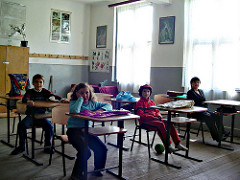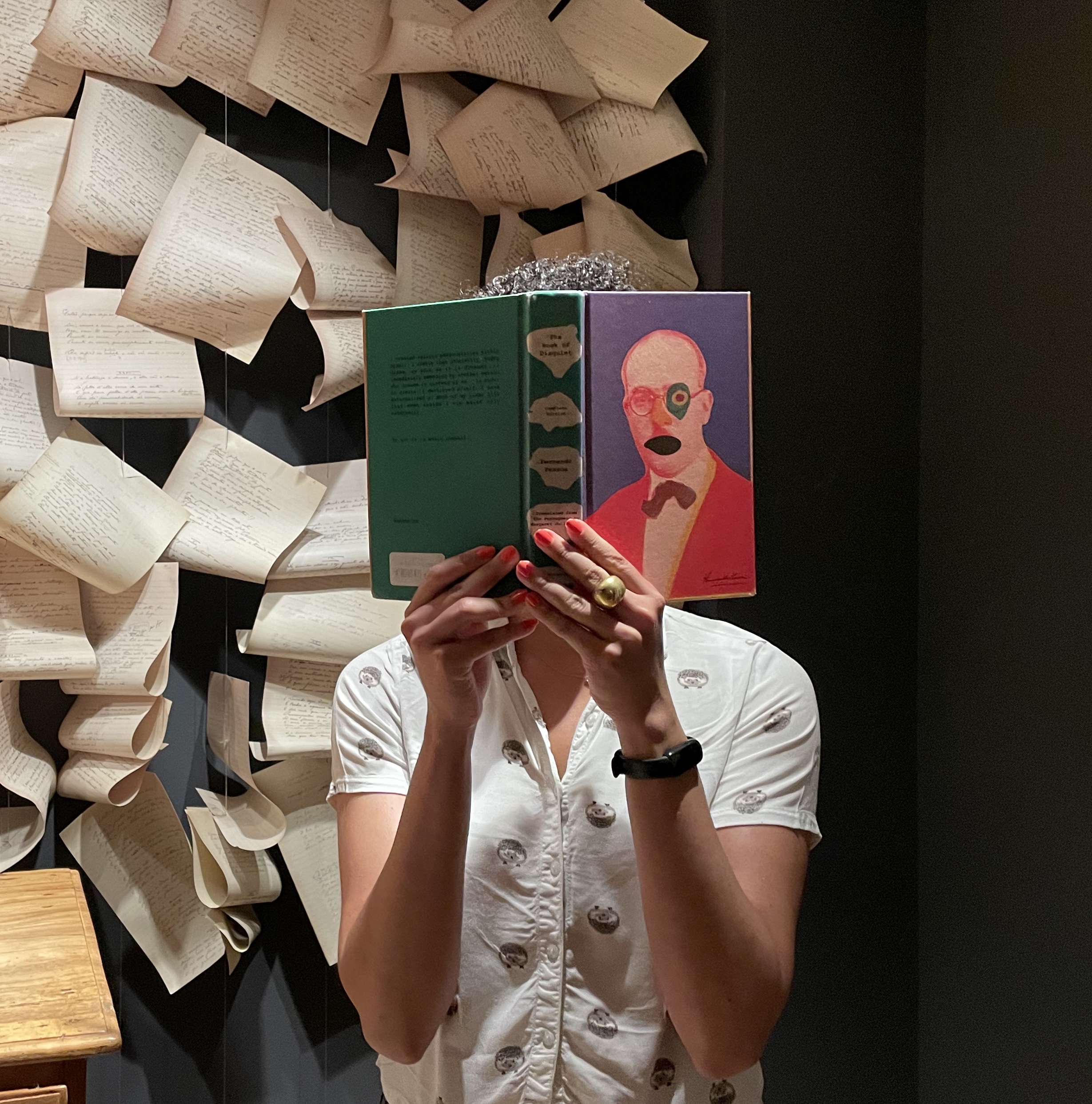It was a boy named Pierre Powell
that was in charge of the atlas
in the cabinet. He also ended days
by shaking the iron bell from principal
William’s window, a work we grudged
him for very little; what cut our cores
twice a week and we had to endure,
was him being summoned to fetch
the key, again from William’s office,
to open the varnished box with the world
map, old and laminated, a forbidden
missionary gift trophied beside the Oxford
Set of Mathematical Instruments and other
things seen only by Pierre and teacher Rose,
who now only nodded to raise him
to his duty. We waited in quiet
his return, Miss Rose all crinkled blouse
and bones with chalk dust in her hair,
did not stir until he was back, panting
at the door. Another diviner nod
and he opened it, unrolled the map expertly,
kneaded out creases and held down edges
for the ruler our eyes followed,
screeching out countries, and etched
in the periphery, a khaki-pillared Pierre,
with a merchant’s smile, a fixed blur
in our cry of Algeria, Switzerland, Chile,
soon withered away, and we eyed the field
of dry grass outside, a rusty mule,
statue-frozen in the punishable heat,
Pierre, a phantom sea fraying
over Antarctica, Fiji, Belize, India
of those still in the rote, a liturgy of dunce,
bats, whose one cardinal point, Tropicana
Sugar Estate, so close we could smell the sugar
in process, whistled its shift change,
and terminated Geography. As if punched
from dream, those of us gazers spared the map
rolling up and cabinet locking ceremony,
saw him, with a cord-strung key, an earnest air
bearing him away in a portal of sunlight.
He was absent, the week before summer,
and when Miss Rose, in rare fashion,
inquired, a girl said he had gone back home.
“Home,” Miss Rose sounded the strange word.
“Home,” the girl echoed and added, “him from Cayman,
Miss, or Canada, somewhere with a C.”
We turned to Miss Rose to clarify Canada
or Cayman, this elsewhere C curdled
to snow in our minds; foreign always spectral,
but she pointed anonymously a crooked
finger and said, “Run to the principal
for the key,” the whole class scattered, paid
no heed that not a single one was ordained.
Ishion Hutchinson‘s first collection, Far District, won the PEN/Joyce Osterweil Award. He is an assistant professor of English at Cornell University.
Click here to purchase Issue 03




